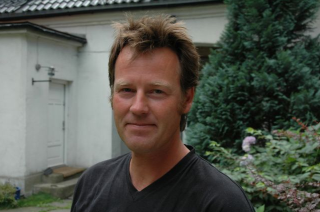
Arctic Frontiers: Disinformation, Security and the Northern Sea Route
Bellona held a seminar on countering Russian disinformation in the Arctic at the Arctic Frontiers international conference in Norway
News

Publish date: December 8, 2014
News
Finland Friday approved the construction of a controversial Russian-backed nuclear power plant in Pyhäjoki in a plan that strengthens energy ties between Helsinki and Moscow while many western governments are seeking to isolate Russia over military intervention in Ukraine.
The Finnish parliament voted by 115 to 74 in favor of the cabinet’s decision to approve a plan submitted by the Finnish-Russian consortium Fennovoima to build a new nuclear power plant on the northwest coast of Finland that will cost an estimated €4 billion to €6 billion.
Russian state nuclear corporation Rosatom holds a 34 percent stake in the group, and has vowed to drum up financing for the new plant.
Fennovoima has meanwhile been trumpeting that 60 percent of the plant will be owned domestically or by other European Union stakeholders.
According to Rosatom, who seems to be taking the lead voice on the matter in much media, has said the plant will go online in 2024, but only after strict environmental tests. It will be Finland’s third nuclear power plant, and the only the second to be located in the Barents Region. The other is Russia’s Kola Nuclear Power Plant near Murmansk.
The Pyhäjoki plant, south of Oulu in Northern Finland, will consist of a 1200 MW AES-2006 reactor, the first of its type to go into operation.

That the plant passed parliamentary muster is not a surprise, but it is frustrating to many. In September, Finland’s cabinet voted to back the plant, prompting a walkout of the government’s Greens of Finland.
Ville Niinistö, the leader of the party, said Russia could spin the Fennovoima deal to create a perception, especially domestically, that Moscow hasn’t been isolated because of its Ukraine policy, The Wall Street Journal reported.
Nine demonstrators were arrested, but Hyokyaalto promises further disruptions in the plant’s construction.
The echo of ‘sadness’ in the environmental community
Nils Bøhmer, Bellona’s executive director and nuclear physicist immediately called the Finish Parliament’s decision “very sad,” though voiced skepticism the plant would ever be built.
“A political majority is for the plant, but that doesn’t mean they actually will ever have the money to ultimately build it,” said Bøhmer.
Despite the large parliamentary margin voting in favor of the joint venture, Fennovoima’s reliance on Russian backing has some Finnish politicians, environmentalists and the general public ill over the deal’s cow-towing to Russia’s uncertain geopolitical ambitions and shaky environmental policies, especially in the nuclear sphere.
“We have previously seen that Russian nuclear power plants put less focus on safety information than similar western reactors,” said Bøhmer. ”Additionally, Finland will be more bound up with Russia as it will be dependent on Russian nuclear technology.”

Other European countries have looked askance at the deal, most vociferously Sweden. The planned plant would go up 150 kilometers from the northerly Swedish municipalities of Luleå, Piteå and Skellefteå, the Local.se news portal reported.
Per Holmqvist of the nuclear free Bothian Bay activist group lamented the decision and echoed that it was “sad.”
“This is a very sad day as this is one biggest non-nuclear parts in the whole of Europe,” Holmqvist told the Local. “Now they want to ruin it by building a nuclear plant.”
Even some pro-nuclear parliamentarians in Finland are aghast. Stefan Wallin of the Swedish People’s Party of Finland cast a blank ballot in Friday’s vote.
“It does not my habit to vote blank, but I have two opinions on the matter,” Wallin told Hufvudstadsbladet as quoted by the Barents Observer news portal. “I support more nuclear power, but in the current geopolitical situation after what happened in eastern Ukraine and with the EU’s trade sanctions, I could not vote for a project where Rosatom is a major owner.”
Plant initially could draw no investment
Fennovoima received an initial approval for the project in 2010 but has struggled to attract funding as doubts over nuclear power’s profitability and safety have grown. The project was circling the drain before Rosatom’s entry in late 2013.
Despite Rosatom’s backing, Fennovoima’s future remained doubtful until this week when the Finnish energy utility Fortum said it would take up to a 15 percent stake in Fennovoima, ensuring the project will meet a 60 percent indigenous ownership requirement set by the Finnish government, said The Wall Street Journal.
Fortum’s investment is contingent on the utility getting a majority ownership of a sizable number of hydropower plants in Russia as part of an asset swap involving Rosatom and the natural gas giant Gazprom, the paper reported.
Russia has been perceived as trying to increase its influence in Europe through energy – and threats to withhold it – and Rosatom’s export efforts as a state corporation are influenced as much by business prerogatives as they are by political ones.

Bellona held a seminar on countering Russian disinformation in the Arctic at the Arctic Frontiers international conference in Norway

Our December Nuclear Digest, reported by Bellona’s Environmental Transparency Center, is out now. Here’s a quick taste of three nuclear issues arisin...

Bellona has launched the Oslofjord Kelp Park, a pilot kelp cultivation facility outside Slemmestad, about 30 kilometers southwest of Oslo, aimed at r...

Our November Nuclear Digest by Bellona’s Environmental Transparency Center is out now. Here’s a quick taste of just three nuclear issues arising in U...